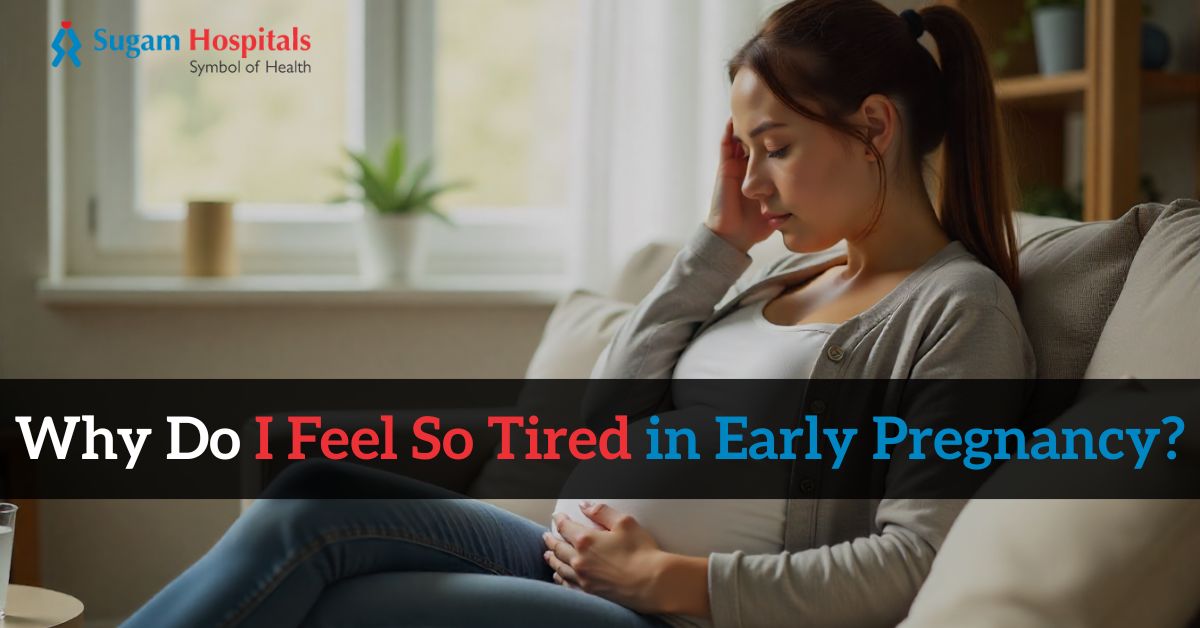Why Do I Feel So Tired in Early Pregnancy?

Why Do I Feel So Tired in Early Pregnancy?
September 9, 2025 by adminAs you might imagine, the first few weeks of pregnancy involve numerous changes; some good, some bad. Among the many symptoms women experience in the early stages of pregnancy, fatigue is the most commonly reported frustration.
Even when women can rest whenever they choose, the fatigue is often so intense that it leaves them wondering if they are doing something wrong. When in reality, fatigue during early pregnancy is normal, and in most cases, you can consider it as a part of the pregnancy analogy. Knowing why fatigue occurs, will help to cope with it and also assist you in understanding how serious it is if you need to contact your physician or midwife.
Why Fatigue Happens in the First Trimester
Pregnancy can challenge the body in several new ways almost at the outset, particularly in the first trimester, and the demands can be twice as high when carrying twins, triplets, etc. Hormones such as progesterone rise quickly and it’s the rise of progesterone that protects the lining of the uterus where the embryo is implanted and prohibits early labor. But progesterone also has a sedating effect. This hormonal change is likely one of the reasons so many women report being unusually sleepy or dragging throughout the day.
During pregnancy, the body is making more and more blood in order to provide oxygen and nutrition to the fetus that is growing larger and larger, this may not only leave the mothers feeling lightheaded, or weak, but also tired.
Metabolic changes also play a role. The body is working much harder to metabolize food and convert it into energy for both the mother and the baby, meaning there is less energy to be used in daily tasks.
Additional Factors That Contribute to Fatigue
Hormones are a the main cause and reason can contribute to tiredness:
- Morning sickness: If you are nauseous or vomiting, it can be challenging to have balanced meals, which translates into low energy.
- Sleep disturbances: You might be getting up several times a night to urinate, having strange and vivid dreams, or feeling anxious about your pregnancy. These disturbances can change your sleep schedule.
- Emotional change: some people will experience mood swings, which can affect mental energy just as much as physical energy.
- Nutrient demands: Iron deficiency especially can lead to anemia, which is tied to fatigue.
Each woman’s experience is unique: some may feel slightly tired and others constant fatigue in their first trimester.
How to Cope with Pregnancy Fatigue
Managing fatigue typically only requires some small lifestyle changes. It is most important to make rest a priority and listen to your body when it asks you to sleep. Napping is not a luxury; it’s a need at times! Allow yourself a nap, or even a short period of rest during the day, to help improve alertness.
Eating well is equally important. Iron, folic acid and protein are all vital for energy production. Staying hydrated is also a lesson learned by many women, dehydration worsens fatigue, especially if you are pregnant and toting around more weight! Some women find it helpful to eat smaller meals more often to maintain steady energy throughout the day.
Though it is slightly counterintuitive, physical activity can support improvement in energy. Some gentle activities like walking or prenatal yoga can help with circulation, as well as help you sleep better at night. Of course, do not forget to balance physical activity with rest.
When Tiredness Signals Something More
Although exhaustion is common and it is not a health issue, at times it can be indicative of an underlying problem. Severe or persistent fatigue could be an indication of anemia, thyroid disorder, gestational diabetes, or even depression. Further, if fatigue appears along with other symptoms like dizzy spells, palpitations, or shortness of breath, it would be important to speak to your doctor sooner rather than later.
Doctors can conduct simple tests to help rule out medical options and advise on supplements or treatment if necessary. Ignoring severe fatigue is never wise, as it can impact both the health of the mother and the health of the fetus.
Looking Ahead: What to Expect
Most women notice that their fatigue eases in the second trimester of pregnancy (arriving at this point, hormone levels are stabilizing, morning sickness is becoming less of a bother, and women are becoming accustomed to all the work their bodies are doing). It’s important to note that some women will experience fatigue again later on in their pregnancy; fatigue later on is usually attributed to the energy required by the body to carry an increased amount of weight, and many women find it difficult to find comfortable positions for sleeping.
Understanding that first trimester fatigue is normal, and temporary, can offer some comfort. When you are well looked after and working together with your medical provider, dealing with fatigue as a symptom while being present to the whole journey that lies ahead becomes much easier..
Experiencing fatigue in early pregnancy is typically a normal reaction to the strong hormonal, physical, and emotional shifting that is occurring in the body. Assuming the basic elements of rest, diet, and general health are attended to by the new mom, most women will be able to tolerate this discomfort until their energy returns. Persistent or extreme fatigue, however, should not be ignored, as medical guidance can confirm that everything is okay. For complete care and advice, refer to our gynecologist specialist in Chennai, to offer services that will ensure health for you and your baby throughout the pregnancy.

